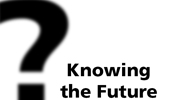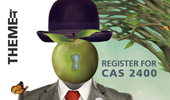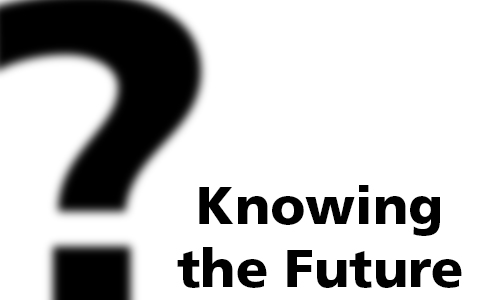The Knowing the Future theme launches a new course on “Knowing What We Know” in Spring 2015.
 “The theme includes a broad range of classes that teach and discuss the tools that are used to make predictions in disciplines from Mathematics to Population Biology to History,” says theme leader Dr. Daniel Phillips, Professor of Physics. “We’re also interested in understanding what we really know about the present and the past. So our first-year class, ‘Knowing What We Know,’ discusses how the inter-related issues of knowledge, uncertainty, and prediction arise and intersect in contemporary policy issues, societal debates, and state-of-the-art research.”
“The theme includes a broad range of classes that teach and discuss the tools that are used to make predictions in disciplines from Mathematics to Population Biology to History,” says theme leader Dr. Daniel Phillips, Professor of Physics. “We’re also interested in understanding what we really know about the present and the past. So our first-year class, ‘Knowing What We Know,’ discusses how the inter-related issues of knowledge, uncertainty, and prediction arise and intersect in contemporary policy issues, societal debates, and state-of-the-art research.”
“In addition the theme includes more than 20 other Spring classes that fulfill a broad range of College of Arts & Sciences distribution and General Education requirements. These courses cover fields ranging from Physics to Philosophy and Plant Biology to English.”
CAS 2400 Knowing What We Know (T2, AS)
 Course Description: How often has someone asked you “How do you know that?” How do you tell fact from opinion? Do numbers never lie? What’s the difference between knowing and believing? Between uncertainty and skepticism? How can we figure out what happened long ago? Can we predict the future? Knowing What We Know is an interdisciplinary First Year Seminar taught by Ohio University faculty members from a variety of disciplines in the natural and social sciences and humanities. All are interested in the advantages and limitations of different means for understanding our society, our world, and the cosmos. Beginning with the historic branch of philosophy devoted to the analysis of knowledge, evidence, and similar notions, known as epistemology, instructors will introduce students to the way different forms of mathematical, statistical, and scientific reasoning enable us to grapple with problems ranging from the everyday (Should I bring an umbrella?) to the cosmic (How did the universe begin?). Exposure to different sorts of quantitative and qualitative reasoning will help equip students to better evaluate arguments and assertions on their merits. In the process, the course aspires to show students how knowledge is pursued on the cutting edge of contemporary research.
Course Description: How often has someone asked you “How do you know that?” How do you tell fact from opinion? Do numbers never lie? What’s the difference between knowing and believing? Between uncertainty and skepticism? How can we figure out what happened long ago? Can we predict the future? Knowing What We Know is an interdisciplinary First Year Seminar taught by Ohio University faculty members from a variety of disciplines in the natural and social sciences and humanities. All are interested in the advantages and limitations of different means for understanding our society, our world, and the cosmos. Beginning with the historic branch of philosophy devoted to the analysis of knowledge, evidence, and similar notions, known as epistemology, instructors will introduce students to the way different forms of mathematical, statistical, and scientific reasoning enable us to grapple with problems ranging from the everyday (Should I bring an umbrella?) to the cosmic (How did the universe begin?). Exposure to different sorts of quantitative and qualitative reasoning will help equip students to better evaluate arguments and assertions on their merits. In the process, the course aspires to show students how knowledge is pursued on the cutting edge of contemporary research.
For more information about the course or the Knowing the Future theme, contact Daniel Phillips at phillid1@ohio.edu.



















Comments